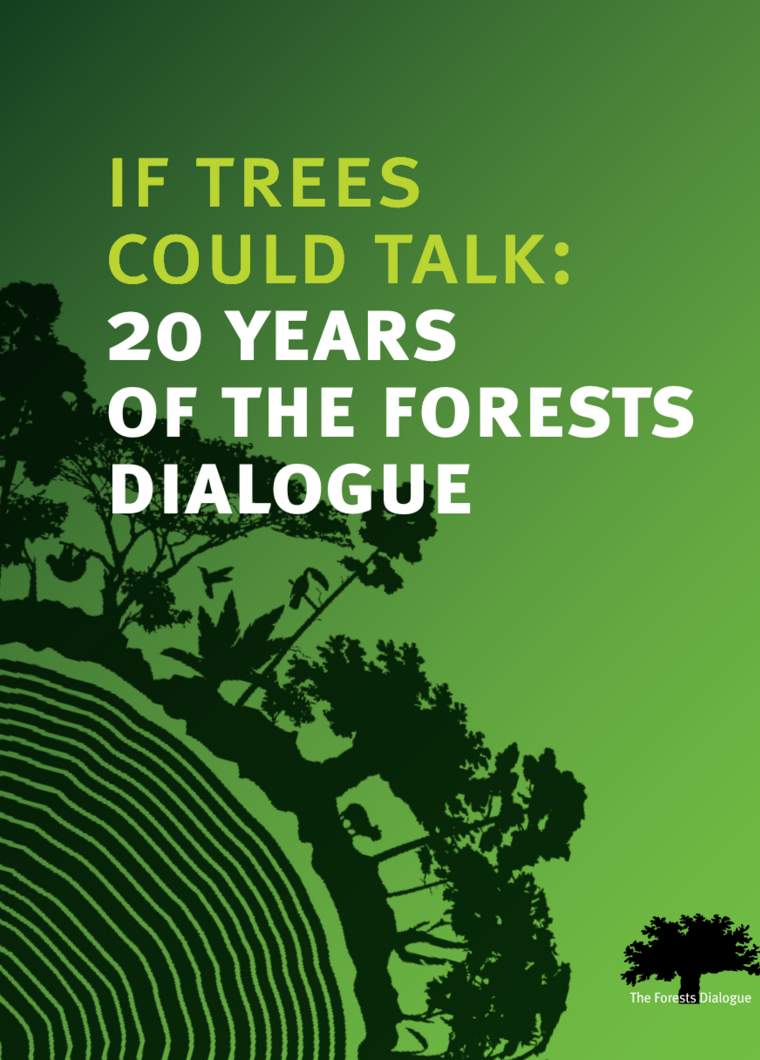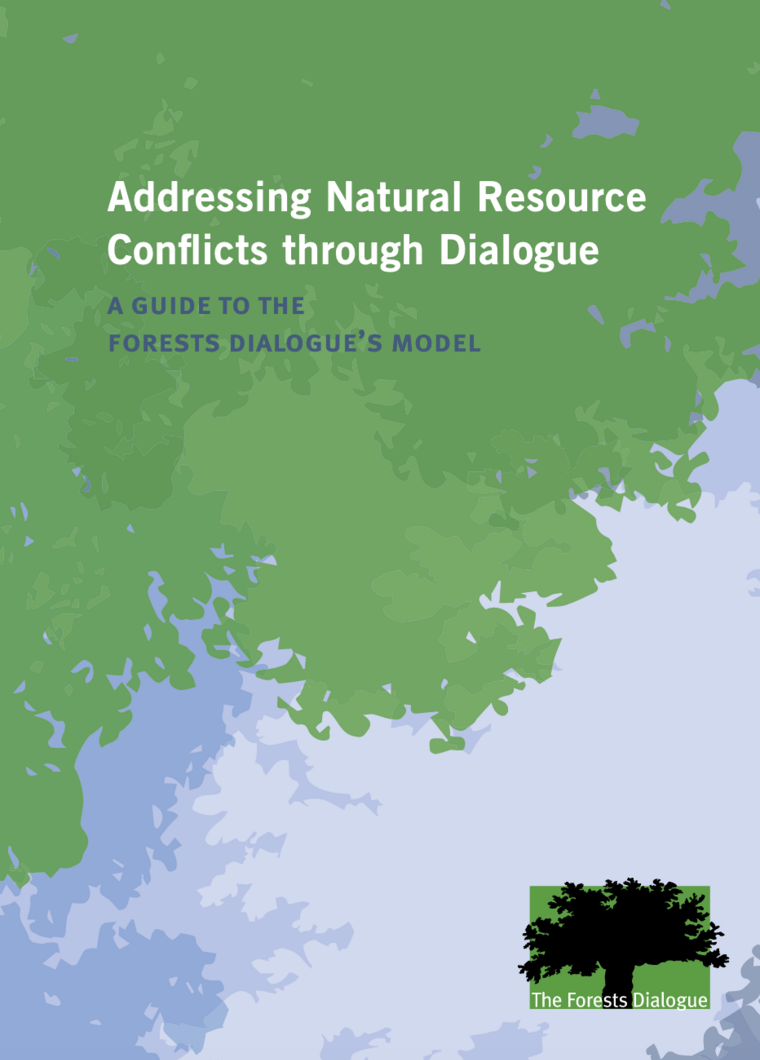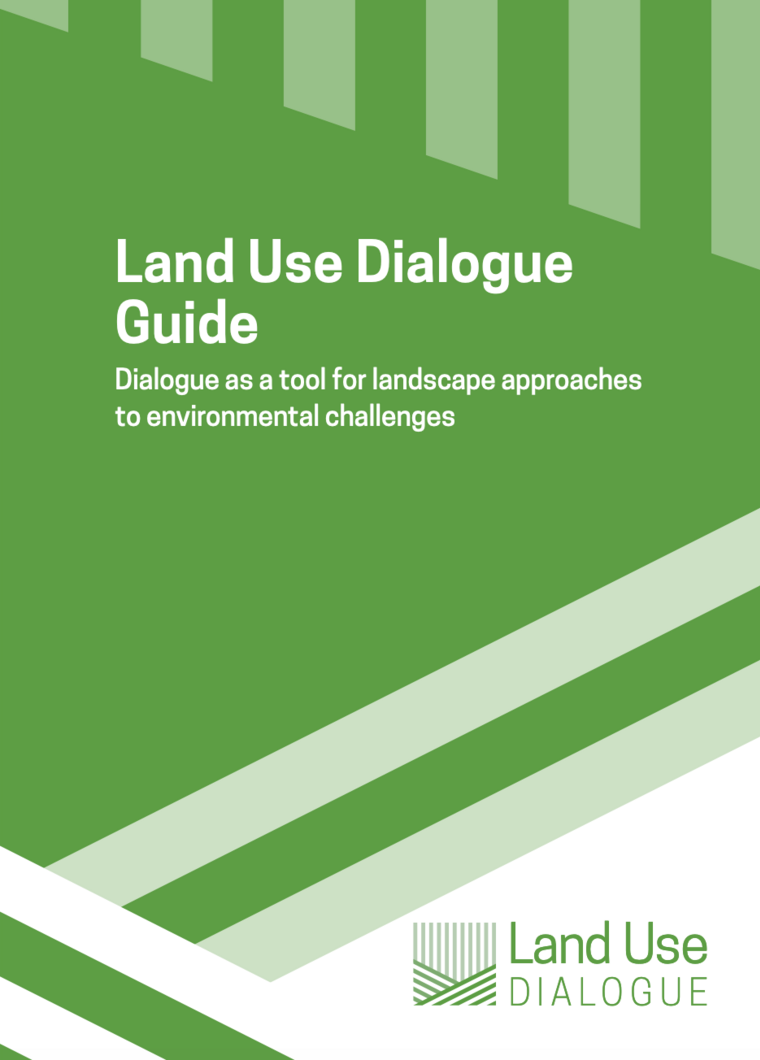Publications
The Forests Dialogue produces and publishes a variety of documents - maintained in a comprehensive library below. The majority of TFD publications are developed through TFD’s initiative process, including the following major publication types. In the lead-up to an initiative, a foundational Scoping Paper is produced to provide context for the scoping dialogue. Background Reports that provide stakeholders with relevant location-specific content are created for each subsequent dialogue following the scoping dialogue. At the conclusion of a dialogue, the co-chairs, with help from the TFD secretariat, produce a Co-chairs’ Summary Report that captures the key perspectives, discussions, agreements, and next steps from the dialogue. At the conclusion of an initiative, the Advisory Group, co-chairs, select leaders, and the Secretariat synthesize the initiative’s conclusions into a TFD Review. Additionally, Country Reports that aggregate learnings from a number of country-specific dialogues are typically produced for initiatives that involve numerous country-level dialogues, including TFD’s REDD+ dialogues. TFD also facilitates the production of guides and policy recommendations including a guide to the TFD process, the Land Use Dialogue methodology. These are geared towards practitioners or policy makers and contain actionable steps that stakeholders can take to enact change based on learnings gathered through the TFD process.
Navigate TFD’s extensive publication database using the search function below, or visit specific dialogue or initiative pages to see their associated publications.
TFD Brochure is your quickest way to learn about TFD.
The Forests Dialogue (TFD) launched the Climate Positive Forest Products (CPFP) initiative in 2020. Using mass timber construction materials as an entry point, the Initiative aims to build understanding and agreement amongst stakeholders around the opportunities, challenges, and knowledge gaps related to utilizing forest products as a climate change mitigation tool.
Mass timber as a building material has garnered considerable attention in recent years and is being touted as a potential improvement for ease of construction and pre-fabrication as well as carbon reductions when compared to conventional building materials.
If Trees Could Talk moves through TFD’s structure and approach, from its three-part methodology “Engage! Explore! Change!” to the internal diversification of voices and an expanded focus from the economic and ecological importance of forests to integrating social and cultural values.
The Land Use Dialogue Guide is an implementer’s guide but not in the sense of do x,y,z to achieve some outcome. Instead it presents stages of decision making in which LUD leadership will need to consider how to shape the process to meet their unique context and needs.
A Guide to the Forests Dialogue’s Model outlines how to plan, organize, and implement multi-stakeholder dialogue initiatives. The guide draws on TFD’s experiences and lessons learned from implementing more than 90 dialogues over the past 20 years.
The Mole Ecological Landscape Land Use Dialogue was held 14 - 16 May 2019 and addressed livelihood and landscape challenges of the area encompassing Ghana’s largest protected area (Mole National Park).
The Mangai Landscape Land Use Dialogue was held 31 May - 4 June 2019 and addressed challenges of implementing restoration options discussed at the previous National Scoping Dialogue held in Kinshasa.
The LUD focused on the priority restoration areas identified by participants in the National Scoping Dialogue and built on the important information received from the focus groups.




